14 August, "Partition Horrors Remembrance Day"
14 Aug 2023 10:57:57
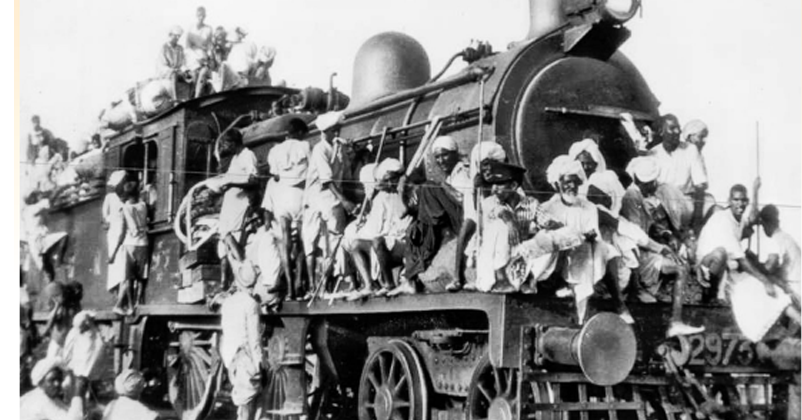
14 August in India is observed as 'Partition Horrors Remembrance Day’ in remembrance of the people who lost their lives during the partition and to remind the present and future generations of Indians of the pain and suffering faced by the people of India during partition.
It was first observed in the year 2021, after announcement by Prime Minister Narendra Modi. Modi hoped that the day would keep reminding us of the need to remove the poison of social divisions, disharmony and further strengthen the spirit of oneness, social harmony and human empowerment.
"Partition's pains can never be forgotten.
Millions of our sisters and brothers were displaced and many lost their lives due to mindless hate and violence. In memory of the struggles and sacrifices of our people, 14th August will be observed as Partition Horrors Remembrance Day." (Tweet by Hon'ble Prime Minister of India Dated: 14th August, 2021)
Britishers divided India into Hindu Majority India and Muslim Majority Pakistan
The partition of India in its most basic form is a story of unprecedented human displacement and forced migration. India’s independence from the British was accompanied by the partition of India into India and Pakistan.
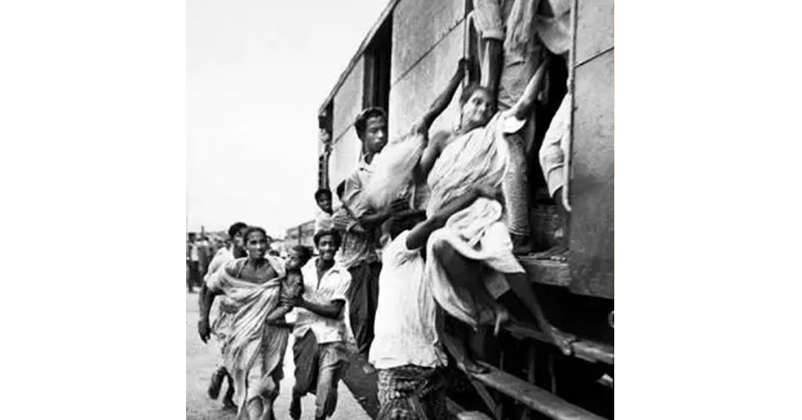
Pic Source: Govt of India
Britishers divided India into Hindu majority India and Muslim majority Pakistan, leading to unprecedented migration as Hindus and Sikhs moved from newly formed Pakistan to India and Muslims in large numbers migrated from here to Pakistan.
About 60 lakh non-Muslims moved out from what had become West Pakistan and another 65 lakh Muslims moved out from the Indian part of Punjab, Delhi, etc., into West Pakistan. In the east, an estimated 20 Lakh non-Muslims moved out of East Bengal (Pakistan) and later in 1950 another 20 lakh non-Muslims moved into West (India) Bengal. It is estimated that about ten lakh Muslims had moved out of West Bengal.
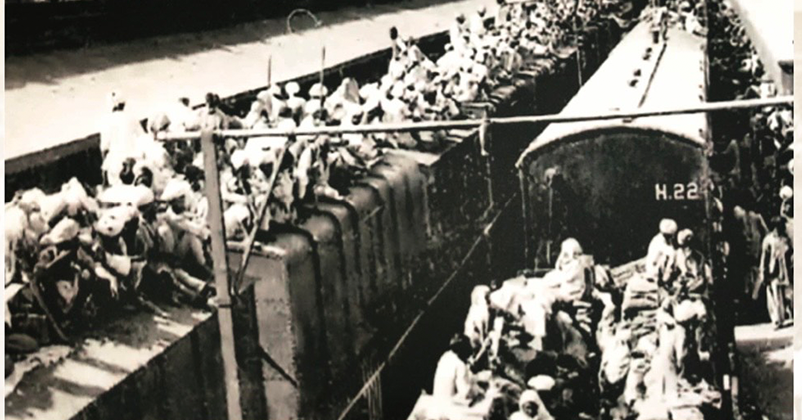
The estimate of those killed has varied from 500,000 to over 1,000,000. The generally accepted figure stands at around 500,000.
Perhaps the most tragic aspect of the mass displacement was that those who left their homes and had to make new ones went on thinking of themselves as displaced or as refugees. Home was always what they had left behind; never where they had now ended up, no matter how long they lived there.
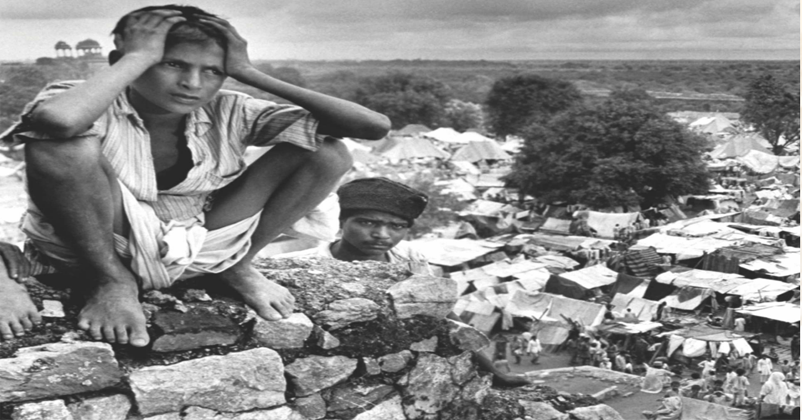
"The British Government was mediator rather than arbitrartor"
On February 20 (1947) British Prime Minister Clement Attlee had announced in the House of Commons that the Government had decided to hand over power and leave India not later than 30 June 1948. The whole process however was fast forwarded by Lord Mountbatten by almost a ear. Mountbatten had returned to New Delhi from London on May 31, 1947, carrying with him the approval for advancing the transfer of power. The plan was broadly agreed upon in the historic meeting of June 2, 1947. The decision to partition India was like a pre-condition.
There was widespread opposition to the plan in general and more specifically to the idea that a country such as India should be partitioned on the basis of religious following. The mental divide appears, it was said, to have existed only among the leaders and other interests who saw in the country's partition their own bright future.
Historic Press Conference: June 4, 1947
Viceroy Lord Mountbatten addressed a historic press conference in New Delhi on June 4, 1947. As the Viceroy announced the plan to transfer power almost a year ahead of the earlier schedule a series of questions followed. The most important was regarding the transfer of population
.
The Viceroy's answer was: "Personally I don't see it (people moving out) ... some measure of transfer will come about in a natural way ... people will transfer themselves .." (The Tribune June 5, 1947). As time would show this would be a huge understatement. Over 13 million people were uprooted and forced to migrate as a result of the partition.
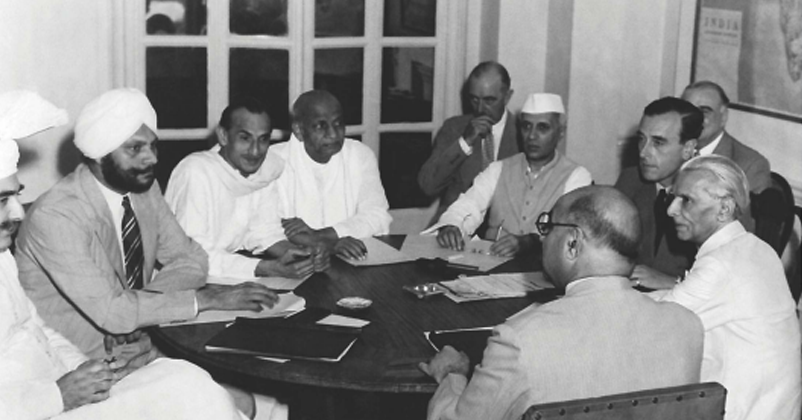 Pic source: Govt of India
Pic source: Govt of India On 4 June, 1947, at a Press Conference, Lord Mountbatten, Viceroy of India, announced the date of independence as 14/15 August. This was much sooner than anyone had expected. The Independence of India Act was passed by the British Parliament on July 18 to accommodate the faster time-table announced by Lord Mountbatten.
Sir Radcliffe was given the task to draw the line of partition, who had never visited India before
In June 1947, Mountbatten asked Sir Cyril Radcliffe, a barrister, to chair two Boundary Commissions - one for Bengal and other for Punjab. He had no knowledge of India and had never been to India before. Mountbatten considered this a favourable point as no one would accuse him of being biased one way or another.
The members of the Boundary Commission were evenly divided and could not agree on the division. The decisions were thus left to Radcliffe. He arrived in India on July 8, and completed his Report by August 12.
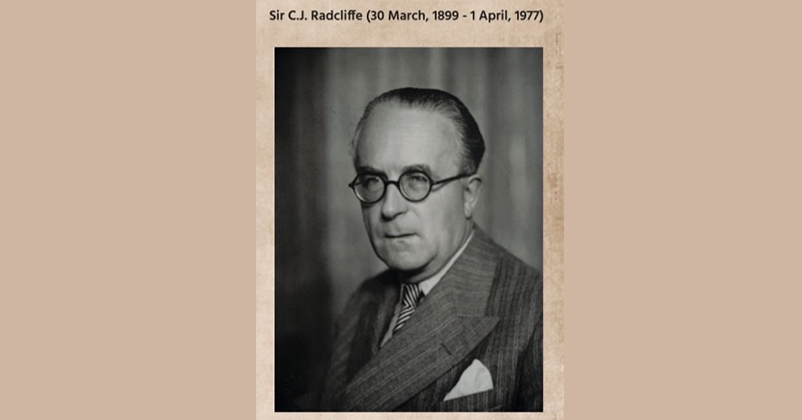
Pic source: Govt of India
There was no way Radcliffe could have understood its complexities. When he was first approached to head the Punjab Boundary Commission, he was expected to complete the task by June 1948. But as it turned out with the Transfer of Power being preponed by almost a year, he had just three weeks to draw the line. The process was conducted like a personal agenda. As this report suggests, the whole plan and the preponed schedule of its implementation was seen as a personal triumph of the Viceroy.